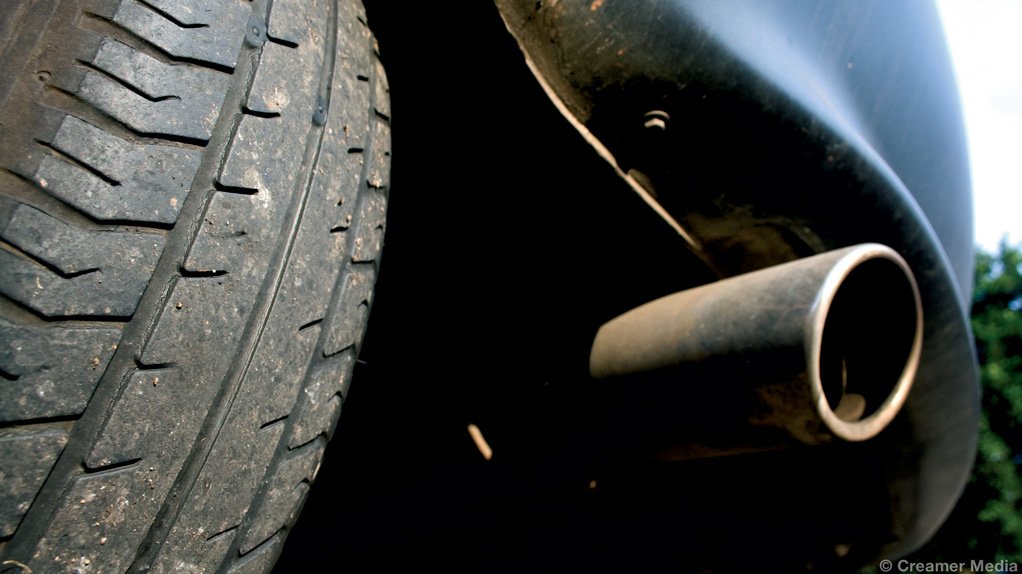Carbon offsets will make SA economy greener – Treasury
Government's proposed carbon offset system is in line with efforts to help South Africa make the transition to a low carbon, greener economy, maintained National Treasury.
Companies that wish to reduce their carbon tax bill can do so by subscribing to the carbon offset scheme. National Treasury on Monday announced publication of the scheme's draft regulations for public comment and further consultation.
The carbon offset regulations were developed jointly by the National Treasury, the Department of Energy and the Department of Environmental Affairs and set out the procedure for the use of carbon offsets by taxpayers to bring down their carbon tax costs. They can do this by using offset credits of up to 5% or 10% of their total greenhouse gas (GHG) emissions, as specified in the bill.
Companies can generate carbon offsets by investing in activities outside their normal scope which result in quantifiable and verifiable GHG emission reductions. These projects should also generate sustainable development co-benefits and employment opportunities in South Africa. This can be done by encouraging investment in energy efficiency, rural development projects and initiatives aimed at restoring landscapes, reducing land degradation and biodiversity protection.
Treasury explained that the carbon offset system is in line with efforts to make the transition to a low carbon, greener economy as set out in the National Development Plan.
The carbon offset proposal has been supported by some stakeholders as a cost-effective way to bring down greenhouse gas usage. "Carbon offsets involve specific projects or activities that reduce, avoid, or sequester emissions, and are developed and evaluated under specific methodologies and standards, which enable the issuance of carbon credits," said Treasury.
However, civil rights body Organisation Undoing Tax Abuse (Outa) believes South African consumers cannot afford the proposed carbon tax, which it says may not even achieve its goal of reducing GHG emissions.
"While government’s stated and noble intention is that the tax will help to reduce green house gas emissions in the medium to long term, Outa believes this will not necessarily be the case,” said an Outa spokesperson. “The carbon tax will not necessarily change business behaviour, who will in turn merely pass on the tax costs to the consumer.”
Outa is particularly concerned by the fact that the carbon tax will not be ringfenced, and that the government does not have a good track record in the way money is spent.
“The tax is predicted to add R13.7-billion to the fiscus and we don’t believe this economic impact will be sufficiently offset through revenue recycling or other initiatives expressed by Treasury,” said an Outa spokesperson.
How the carbon offset system will work
The carbon offset system aims to encourage reduction of GHG emissions in sectors or activities that are not directly covered by carbon tax. Investments in public transport, agriculture, forestry and other land use and waste sectors are likely to qualify, said Treasury.
The carbon offset scheme will be based primarily on existing international carbon offset standards. However, Treasury said scope is also provided for using independently verifiable local standards and methodologies. Eligibility criteria include that projects must be located in South Africa, and that they should occur outside the scope of activities subject to carbon tax to prevent double counting and tax relief.
As a rule, renewable energy projects have been excluded from the carbon offset scheme. This is to avoid the possibility of double counting benefits where these projects have already been incentivised, for example through the renewable energy independent power producer programme (REIPPPP).
Treasury said however that this blanket exclusion could be reconsidered. Discussions with the Department of Energy about current criteria used to evaluate REIPPPPs could identify specific renewable energy project types that might qualify as carbon offset projects, such as small and medium-sized renewable energy projects.
Treasury specified that the technical infrastructure required for the development and implementation of carbon offset projects include a programme administrator, a registry and verification by accredited third party verifiers.
Outa last week made an urgent plea to big business and its respective industry associations to make a serious attempt to assess the real impact and burden of the carbon tax on businesses, and to question the need for what it terms "yet another regressive tax on society".
The draft regulation on carbon offsets is published for public comments and is available on the National Treasury website. Written comments should be submitted to offsetcomments@treasury.gov.za. Any clarification questions can be directed to Dr Memory Machingambi, email: Memory.Machingambi@treasury.gov.za by close of business on 29 July 2016.
Treasury expects to launch the draft carbon tax bill in August or September this year, with recent announcements indicating the tax will be implemented early in 2017.
Comments
Press Office
Announcements
What's On
Subscribe to improve your user experience...
Option 1 (equivalent of R125 a month):
Receive a weekly copy of Creamer Media's Engineering News & Mining Weekly magazine
(print copy for those in South Africa and e-magazine for those outside of South Africa)
Receive daily email newsletters
Access to full search results
Access archive of magazine back copies
Access to Projects in Progress
Access to ONE Research Report of your choice in PDF format
Option 2 (equivalent of R375 a month):
All benefits from Option 1
PLUS
Access to Creamer Media's Research Channel Africa for ALL Research Reports, in PDF format, on various industrial and mining sectors
including Electricity; Water; Energy Transition; Hydrogen; Roads, Rail and Ports; Coal; Gold; Platinum; Battery Metals; etc.
Already a subscriber?
Forgotten your password?
Receive weekly copy of Creamer Media's Engineering News & Mining Weekly magazine (print copy for those in South Africa and e-magazine for those outside of South Africa)
➕
Recieve daily email newsletters
➕
Access to full search results
➕
Access archive of magazine back copies
➕
Access to Projects in Progress
➕
Access to ONE Research Report of your choice in PDF format
RESEARCH CHANNEL AFRICA
R4500 (equivalent of R375 a month)
SUBSCRIBEAll benefits from Option 1
➕
Access to Creamer Media's Research Channel Africa for ALL Research Reports on various industrial and mining sectors, in PDF format, including on:
Electricity
➕
Water
➕
Energy Transition
➕
Hydrogen
➕
Roads, Rail and Ports
➕
Coal
➕
Gold
➕
Platinum
➕
Battery Metals
➕
etc.
Receive all benefits from Option 1 or Option 2 delivered to numerous people at your company
➕
Multiple User names and Passwords for simultaneous log-ins
➕
Intranet integration access to all in your organisation





















